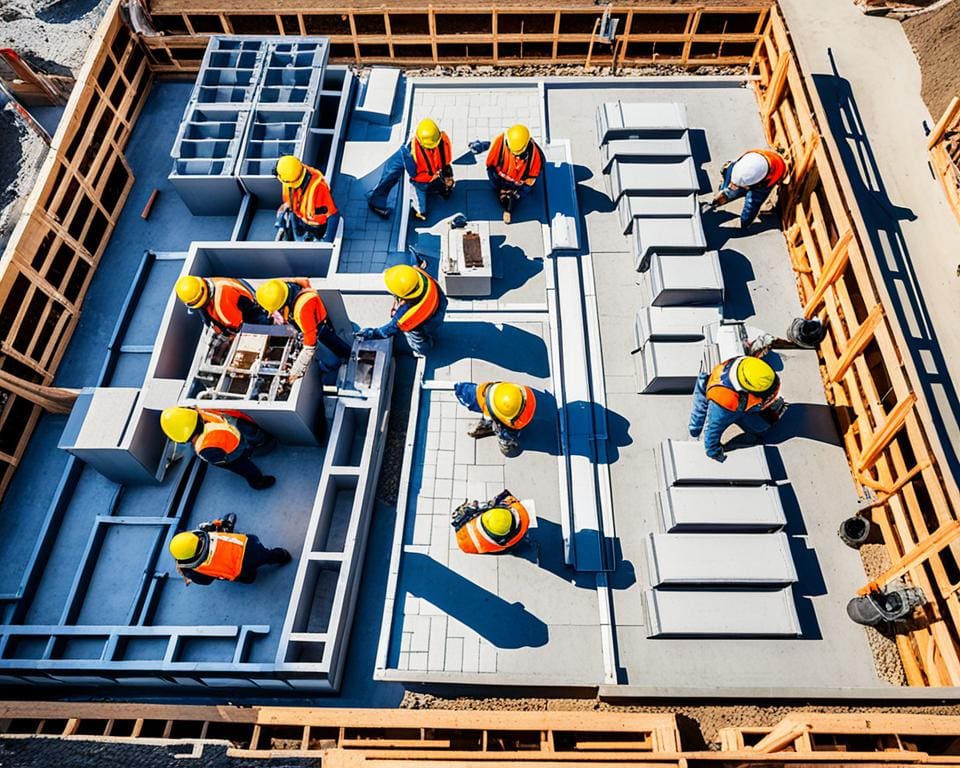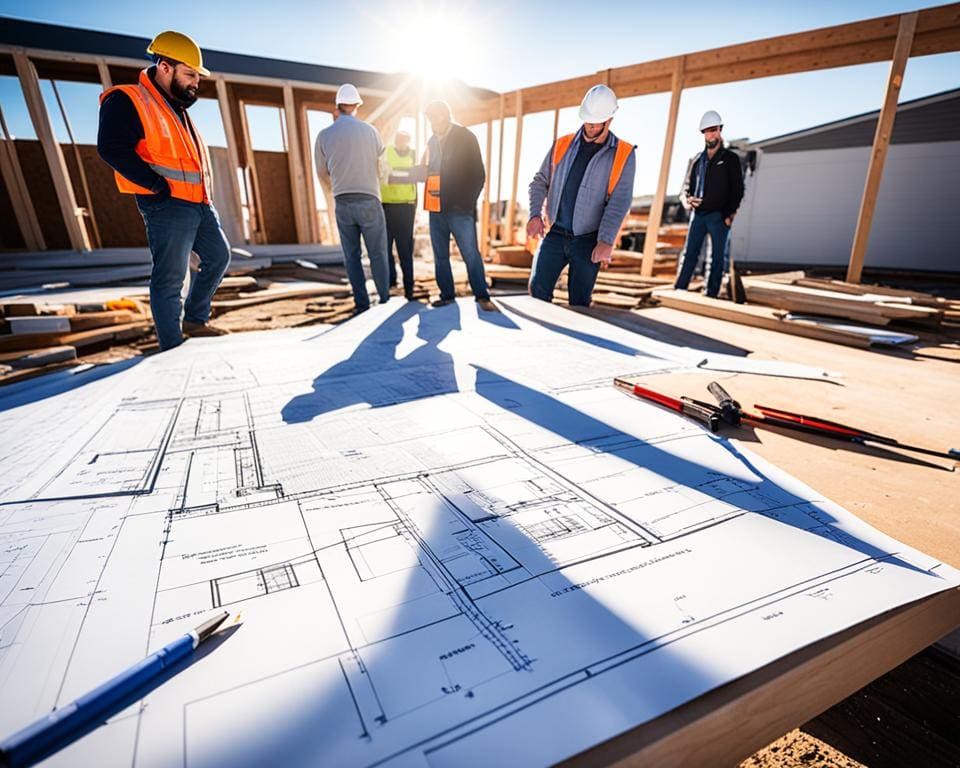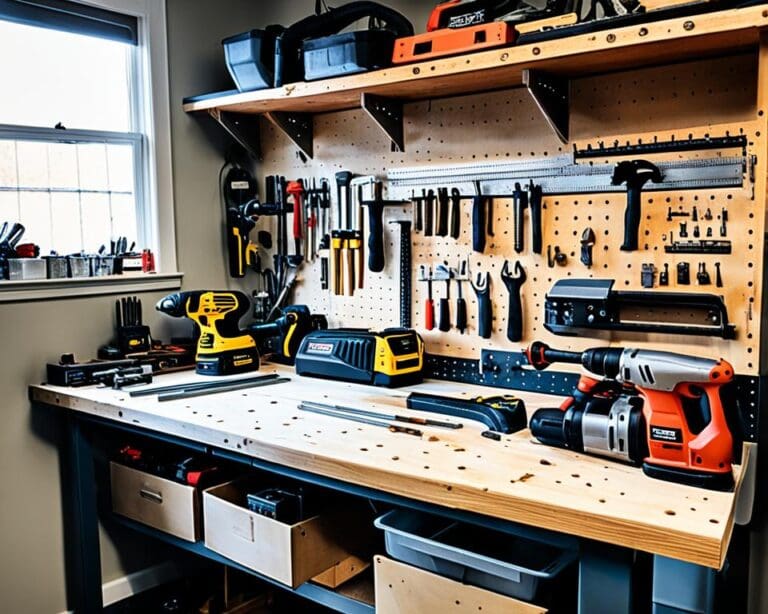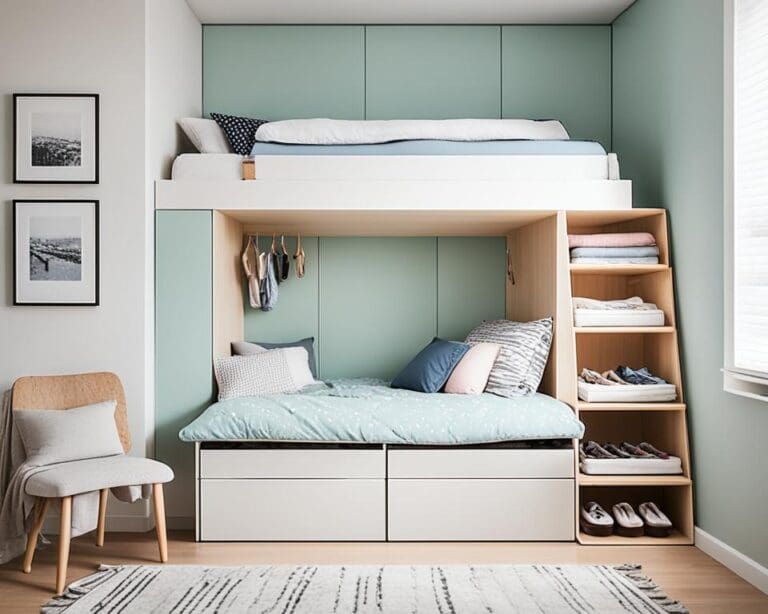Starting a residential construction project is exciting, whether it’s a new home, condo, or an update to what you already have. It’s important to know the top tips for doing it right. This means choosing the best materials, like affordable wood, and planning your time wisely. With the right planning and management, you can increase your home’s value and style.
Knowledge and proven methods are key for a successful construction project. As you read on, you’ll find expert tips to make your project better. These will help you stay on budget and ensure everything is safe.
Understanding Residential Construction Management
Residential construction management is key to completing housing projects well. It oversees everything from planning to the final check. More universities are offering courses because good managers are needed more than ever.
What is Residential Construction Management?
This field is all about managing home building projects. It covers planning, budgeting, and talking to clients. Thanks to new tech, managing projects is faster, saving time and money. Good management means buildings are done on time and don’t go over budget.
Key Responsibilities of a Residential Construction Manager
A construction manager has many important jobs. They plan tasks, manage money, and keep everyone updated. They also follow local building rules and make sure the site is safe.
- Organizing tasks and schedules to align with project timelines.
- Managing budget allocations and monitoring expenses closely.
- Communicating project updates with stakeholders, ensuring everyone remains informed.
- Ensuring compliance with local regulations and building codes.
- Conducting thorough risk assessments and implementing safety management strategies to protect the workforce.
- Documenting every aspect of the project, including contracts, emails, and purchased materials for transparency and future reference.
Using construction management software helps a lot. It organizes documents and makes managing projects smoother. With good strategies, problems like delays and going over budget can be handled better. These tips are crucial for successful home building.

Top Tips for Residential Construction Projects
No construction project succeeds without careful planning and strategic budgeting. These aspects are crucial for good outcomes and avoiding issues. Planning well helps keep projects on time and within budget. This approach leads to successful home renovations and improvements.
Planning and Budgeting for Success
Begin with clear, realistic goals for your project. A well-thought-out design program focuses on both function and durability. It’s important to set budgets early to handle unexpected challenges smoothly.
Think about all costs to make smart decisions. This helps balance spending and value effectively.
- Assess all project aspects to create a practical budget.
- Incorporate a buffer for unforeseen expenses.
- Keep communication lines open for updates and adjustments.
Choosing the Right Materials and Design
When choosing materials, look into wood, masonry, and steel. Each has benefits and drawbacks. Your choices should consider sustainability, too. Aim for designs that match your style, but also ensure energy efficiency and long life.
Keep a clear goal to guide your choices. Mix style with function for better results. Design your project to fit its environment for a satisfying finish.
Effective Communication and Team Management
Communication is key to the success of home building projects. Good communication methods boost teamwork and make clients happy. Here are some top ways to keep everyone on the same page during the project.
Strategies for Keeping Clients Informed
Keeping a clear relationship with clients is vital. Below are strategies to consider:
- Regular progress updates keep clients in the loop about project phases and any changes.
- Using project management software gives updates in real-time and helps set the right expectations.
- Asking for feedback helps improve the work and builds trust between clients and contractors.
- Good documentation practices avoid misunderstandings and ensure everyone is accountable and clear.
Best Practices for Team Collaboration
When team members work well together, projects turn out better. Here’s how to ensure good teamwork:
- Make sure there’s a clear hierarchy so everyone knows their jobs.
- Having regular meetings helps keep the team aligned and lets people raise any issues.
- Listening to each other means all ideas are considered, lowering mistakes and confusion.
- Using tech can give instant updates and make managing the project easier.
- Write down every decision in meetings for a solid record for later.
Common Challenges in Residential Construction and How to Overcome Them
Residential construction faces many unexpected challenges. These include budget overruns and unexpected delays. These issues are often due to poor risk management. This can lead to extra costs and missed deadlines. To avoid this, it’s vital to plan thoroughly and manage the project scope well.
Using home improvement tips for rigorous project planning helps avoid these problems.
Labor shortages and supply chain disruptions are big hurdles too. The need for new homes has jumped by 31% since April 2019. This creates a shortage of skilled workers. Also, high lumber and material prices reduce contractor profits. Effective resource management and better training can boost productivity and solve supply issues.
Clear communication is essential to tackle challenges like bad document management and safety issues. Good communication ensures everyone understands each other, helping avoid conflicts and delays. Focusing on quality control helps meet safety rules. Contractors who pay attention and use good strategies can handle the difficulties of residential construction well. This makes things smoother for everyone involved.









